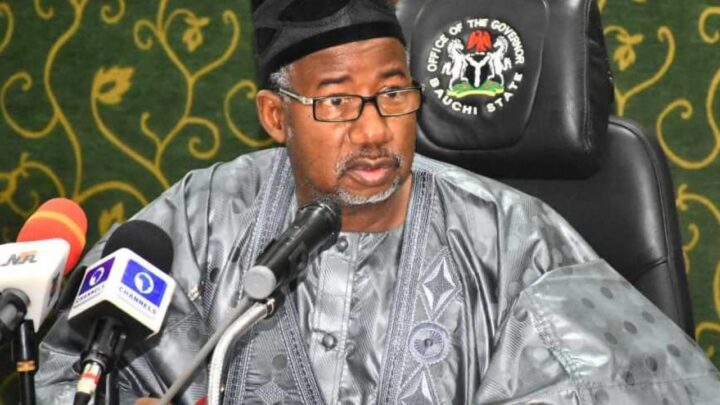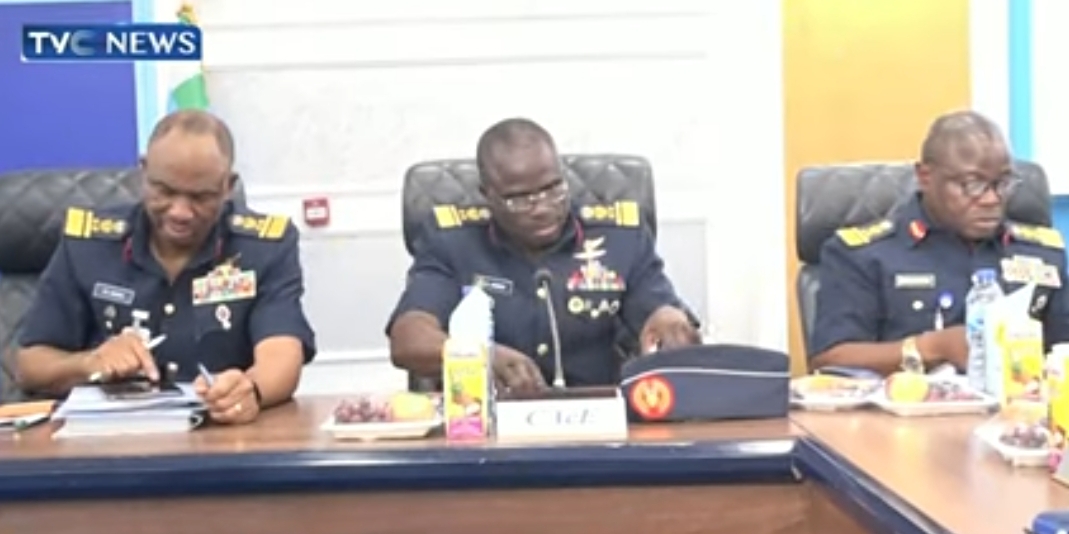Home News
Bauchi State Government Partners with Chinese Firm to Boost Investment and Economic Growth
 Bauchi, Nigeria – March 2, 2025
Bauchi, Nigeria – March 2, 2025
 Bauchi, Nigeria – March 2, 2025
Bauchi, Nigeria – March 2, 2025Federal Government Plans Power Tariff Hike for Band B and C Customers in Nigeria
 Abuja, Nigeria – February 28, 2025 – The Federal Government of Nigeria has unveiled plans to review and potentially increase electricity tariffs for customers categorized under Bands B and C, spar
Abuja, Nigeria – February 28, 2025 – The Federal Government of Nigeria has unveiled plans to review and potentially increase electricity tariffs for customers categorized under Bands B and C, spar
 Abuja, Nigeria – February 28, 2025 – The Federal Government of Nigeria has unveiled plans to review and potentially increase electricity tariffs for customers categorized under Bands B and C, sparking widespread concern among consumers and stakeholders. The announcement, made by the Minister of Power, Chief Adebayo Adelabu, comes as part of a broader strategy to address disparities in the current billing system and encourage investment in the nation's struggling power sector. The disclosure was made during the public presentation of the National Integrated Electricity Policy (NIEP) and Nigeria Integrated Resource Plan on Thursday, February 27, 2025, in Abuja.
Abuja, Nigeria – February 28, 2025 – The Federal Government of Nigeria has unveiled plans to review and potentially increase electricity tariffs for customers categorized under Bands B and C, sparking widespread concern among consumers and stakeholders. The announcement, made by the Minister of Power, Chief Adebayo Adelabu, comes as part of a broader strategy to address disparities in the current billing system and encourage investment in the nation's struggling power sector. The disclosure was made during the public presentation of the National Integrated Electricity Policy (NIEP) and Nigeria Integrated Resource Plan on Thursday, February 27, 2025, in Abuja.Breaking News: Security Frameworks Disrupted as Boko Haram Adapts with Drone Technology
 In a significant development, the withdrawal of the Alliance of the Sahel States from Echass has shaken existing security frameworks in the region. This shift is raising concerns about the Multination
In a significant development, the withdrawal of the Alliance of the Sahel States from Echass has shaken existing security frameworks in the region. This shift is raising concerns about the Multination
 In a significant development, the withdrawal of the Alliance of the Sahel States from Echass has shaken existing security frameworks in the region. This shift is raising concerns about the Multinational Joint Task Force (MJTF)'s ability to effectively conduct operations against Boko Haram, a terrorist group that continues to evolve its tactics.
In a significant development, the withdrawal of the Alliance of the Sahel States from Echass has shaken existing security frameworks in the region. This shift is raising concerns about the Multinational Joint Task Force (MJTF)'s ability to effectively conduct operations against Boko Haram, a terrorist group that continues to evolve its tactics.
Reports reveal that Boko Haram has escalated its use of technology, deploying drones equipped with locally fabricated grenades in a Kamikaze-style attack on troops in Damboa last year. More recently, in 2024, the group executed a similar drone assault on troops in Waju, Damboa, and Buo States, underscoring their growing reliance on unmanned aerial systems. Experts warn that these incidents highlight terrorists’ increasing efforts to refine drone attack technology, posing a new challenge to regional security forces.
In response, military officials are emphasizing the urgent need for a comprehensive and integrated counter-unmanned aerial system to protect troops and air assets. The withdrawal of member states from the Alliance of the Sahel States, combined with Chad’s potential exit, is further complicating the MJTF’s capacity to execute joint operations effectively.
Amid these challenges, there’s a push to leverage advancements in technology and modern warfare to bolster the Nigerian Air Force’s operational capabilities. As Boko Haram adapts, the pressure is on to stay ahead of the threat.
Supreme Court Nullified LG Election in Rivers State
.jpeg) Supreme Court Declares Rivers State Local Government Election Invalid, Sacks Chairmen and Councillors
Supreme Court Declares Rivers State Local Government Election Invalid, Sacks Chairmen and CouncillorsIn a landmark ruling today, the Supreme Court of N
...
.jpeg) Supreme Court Declares Rivers State Local Government Election Invalid, Sacks Chairmen and Councillors
Supreme Court Declares Rivers State Local Government Election Invalid, Sacks Chairmen and CouncillorsIn a landmark ruling today, the Supreme Court of Nigeria declared the local government election conducted on October 5, 2024, by the Rivers State Independent Electoral Commission (RSIEC) invalid, effectively nullifying the results and sacking all elected chairmen and councillors across the state's 23 local government areas. The decision, delivered by Justice Jamilu Tukur, has sent shockwaves through Rivers State, intensifying the ongoing political crisis and raising questions about the governance of local councils moving forward.

